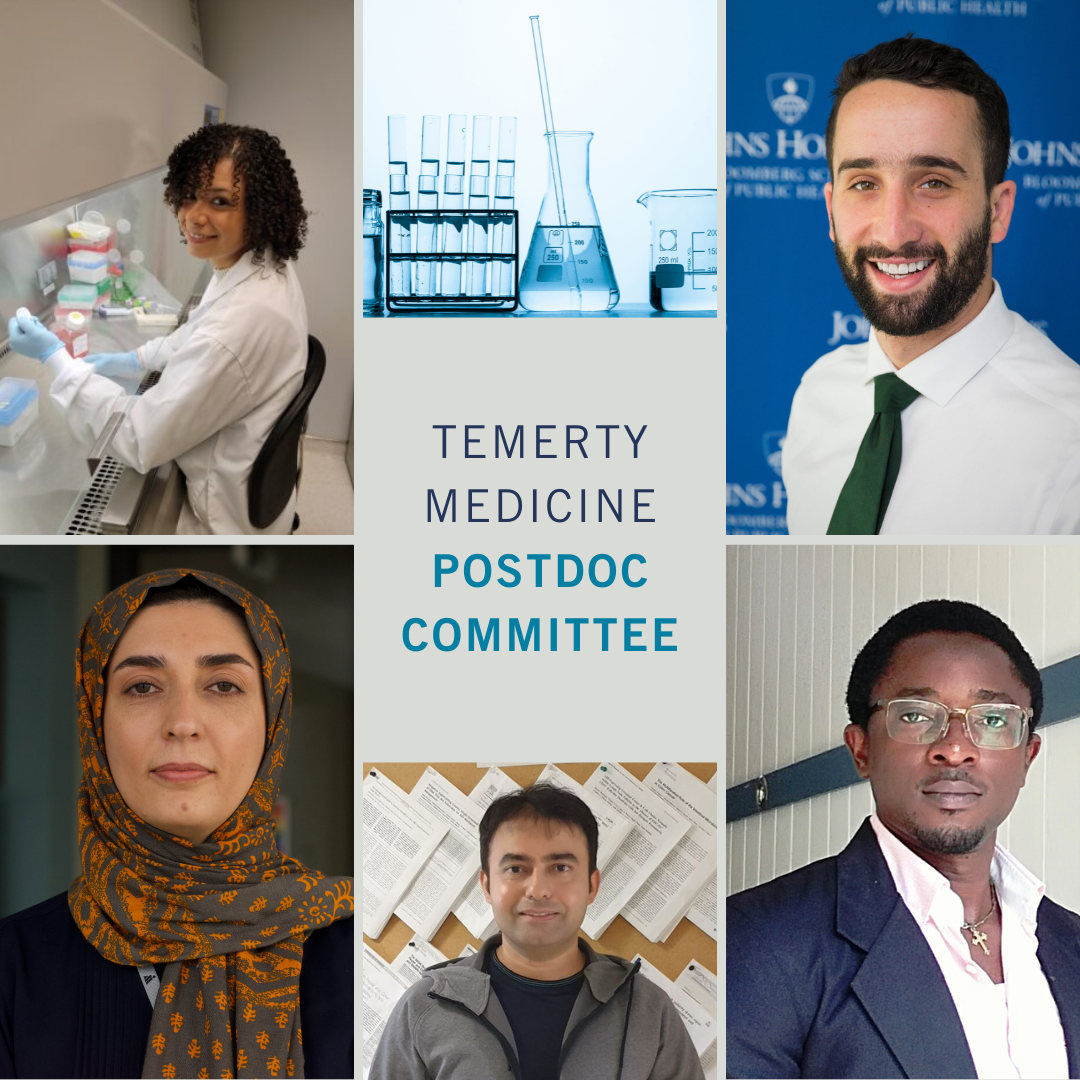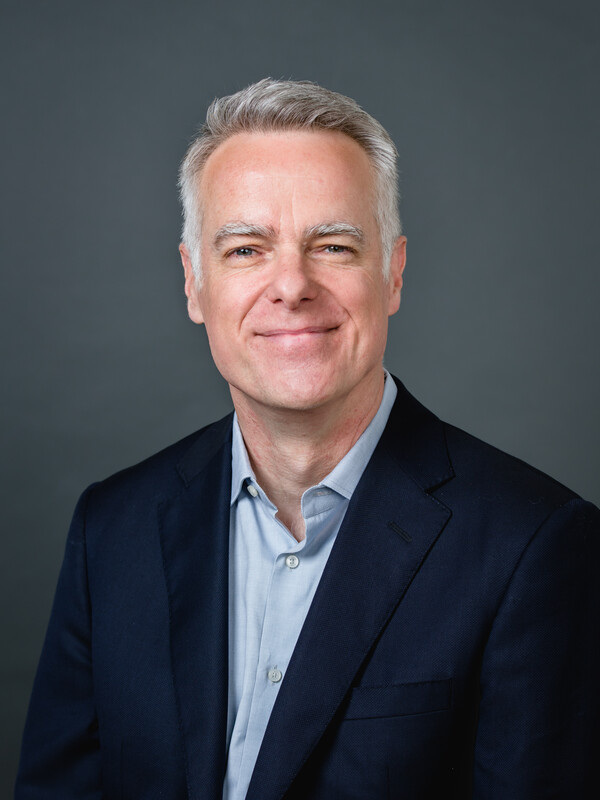Main Second Level Navigation
Mar 12, 2024
RHSE teams up with the postdoctoral community to enhance the U of T experience for trainees

Clockwise from top left: Maria Almeida, Daniel Zaltz, Conrad Simoben Veranso, Sami Mamand, and Leila Safaee, postdoctoral fellows on the new Temerty Medicine Postdoc Committee. Not shown: Danyon Harkins, Heather Shepherd.
